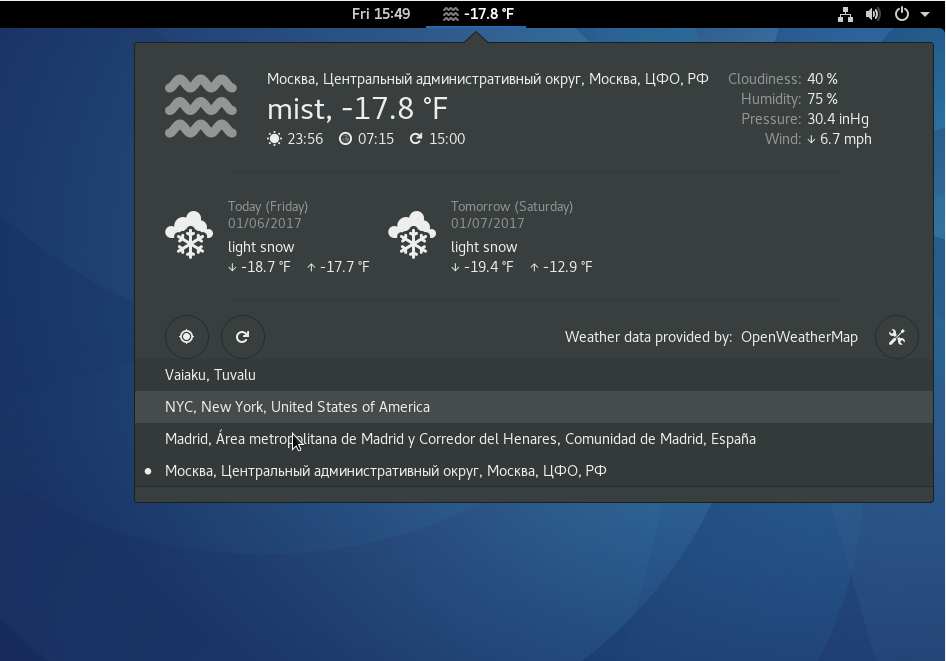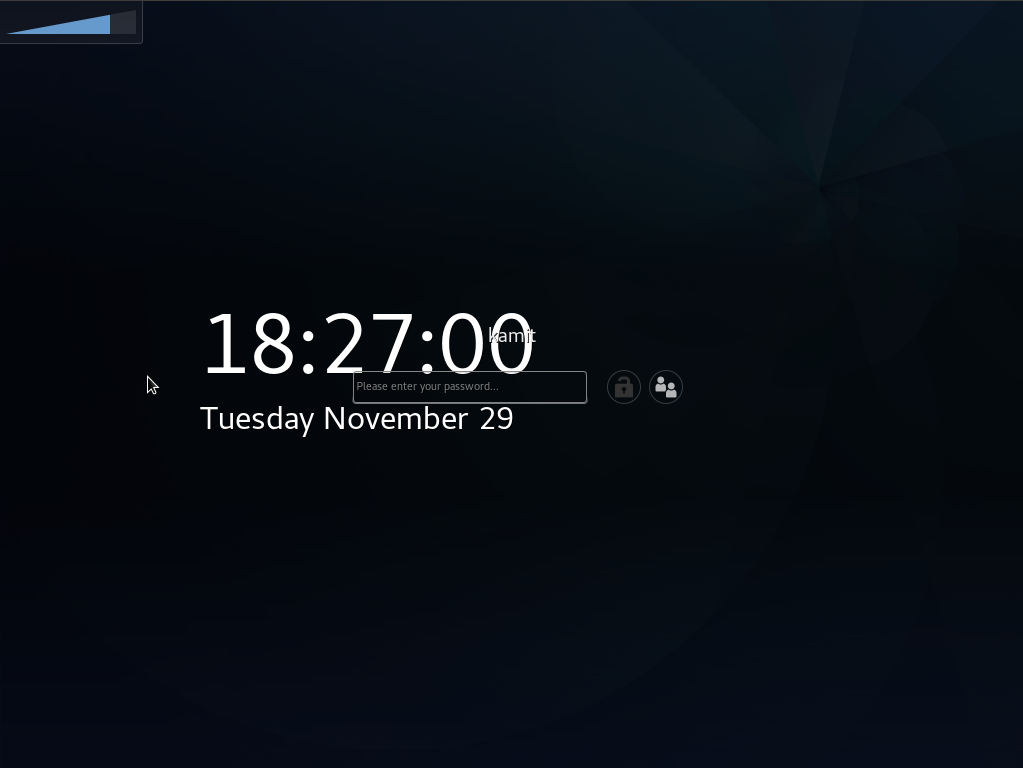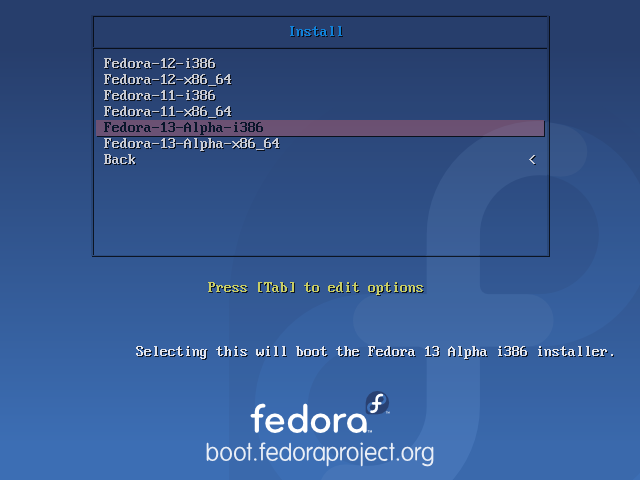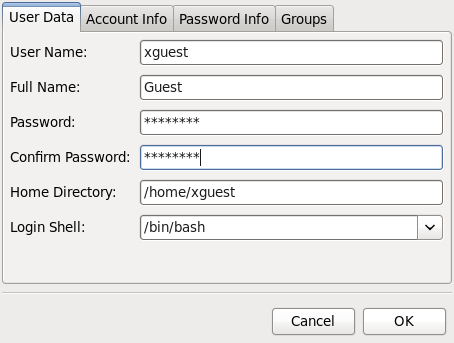For reasons that I’ll reserve for another article, the GNOME desktop environment is my least favorite, and one that I haven’t used for more than a few hours in years.
And when I used to use it, installing shell extensions to make the desktop look and function like a desktop took much of my time. Installing extensions, at that time, was via https://extensions.gnome.org.
Now that has changed, because extensions now have packages that can be installed using the package manager. Not sure if that’s true on other distributions, but that’s how it is now on Fedora, where dnf, the distributions package manager, can be used to install shell extensions, besides being able to do so using the traditional sources.
A search for gnome-shell-extensions on an installation of Fedora 25 returned the following:
# Searching for gnome-shell-extensions on Fedora 25
gnome-shell-extension-iok.noarch : A gnome-shell extension for iok application
gnome-shell-extension-calc.noarch : A simple calculator in the search overview
gnome-shell-extension-common.noarch : Files common to GNOME Shell Extensions
gnome-shell-extension-fedmsg.noarch : A gnome-shell extension for enabling fedmsg desktop notifications
gnome-shell-extension-pidgin.x86_64 : The components necessary to integrate Pidgin with GNOME Shell
gnome-shell-extension-gpaste.noarch : GNOME Shell extension for GPaste
gnome-shell-extension-pomodoro.i686 : A time management utility for GNOME
gnome-shell-extension-pomodoro.x86_64 : A time management utility for GNOME
gnome-shell-extension-apps-menu.noarch : Application menu for GNOME Shell
gnome-shell-extension-panel-osd.noarch : Configure the place where notifications are shown
gnome-shell-extension-user-theme.noarch : Support for custom themes in GNOME Shell
gnome-shell-extension-drive-menu.noarch : Drive status menu for GNOME Shell
gnome-shell-extension-places-menu.noarch : Places status menu for GNOME Shell
gnome-shell-extension-window-list.noarch : Display a window list at the bottom of the screen in GNOME Shell
gnome-shell-extension-openweather.noarch : Display weather information from many locations in the world
gnome-shell-extension-simple-dock.noarch : Simple Dock for the Gnome Shell desktop
gnome-shell-extension-alternate-tab.noarch : Classic Alt+Tab behavior for GNOME Shell
gnome-shell-extension-background-logo.noarch : Background logo extension for GNOME Shell
gnome-shell-extension-windowsNavigator.noarch : Support for keyboard selection of windows and workspaces in
: GNOME Shell
gnome-shell-extension-auto-move-windows.noarch : Assign specific workspaces to applications in GNOME Shell
gnome-shell-extension-remove-volume-icon.noarch : A gnome-shell extension for removing the volume icon
gnome-shell-extension-launch-new-instance.noarch : Always launch a new application instance for GNOME Shell
gnome-shell-extension-workspace-indicator.noarch : Workspace indicator for GNOME Shell
gnome-shell-extension-remove-bluetooth-icon.noarch : A gnome-shell extension for removing the bluetooth icon
gnome-shell-extension-native-window-placement.noarch : Native window placement for GNOME Shell
gnome-shell-extension-screenshot-window-sizer.noarch : Screenshot window sizer for GNOME Shell
gnome-shell-extension-sustmi-windowoverlay-icons.noarch : Viewing the app icons over the window in the
: windows overview
gnome-shell-extension-sustmi-historymanager-prefix-search.noarch : Use PageUp and PageDown to move in the
: log according the prefix
#
Except for gnome-shell-extension-openweather and a couple more, I think I’ve used most of those returned in the search results. I thought gnome-shell-extension-openweather would be interesting, so I installed it using the following command:
# Installing gnome-shell-extension-openweather on Fedora 25 sudo dnf install gnome-shell-extension-openweather #
When installed using the package manager it is said that one needs to log out and then log back in to load the extension. However, that didn’t work for me. The installation is in a virtual environment, but that shouldn’t matter. Each login attempt saw me back at the login screen. I had to restart the VM before I could log in again.
So take note: After installing gnome-shell-extension-openweather, you need to restart the machine before you can log in and start using the extension. If you experience a different behavior, post a comment.
Here’s a screenshot of the Fedora 25 desktop showing the extension on the topbar. No, I’m not in Vaiaku, Tuvalu. That’s just the default location of the extension.
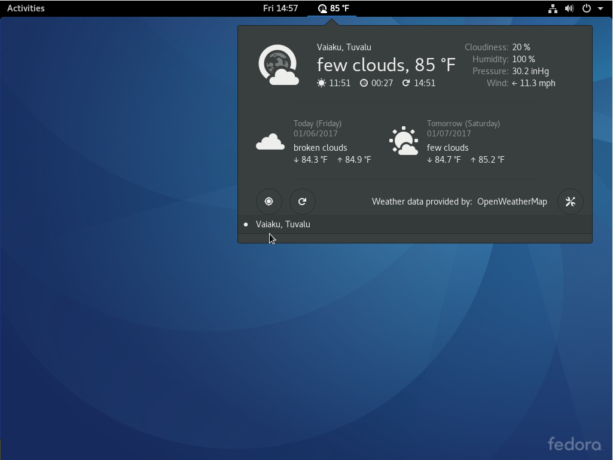
Figure 1: OpenWeather GNOME Shell extension on Fedora 25 GNOME 3
Here’s another showing three additional locations. No, thankfully I’m not in Moscow, Russia, either.
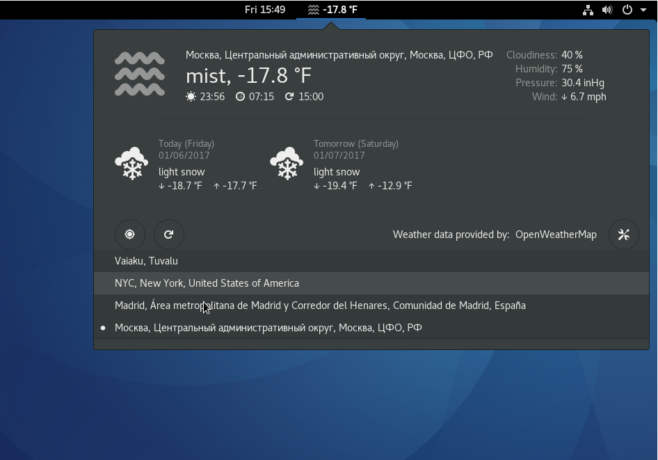
Figure 2: Openweather GNOME Shell extension with multiple locations on Fedora 25 GNOME 3
Note that before the extension will appear on the topbar, you first have to turn it on from the GNOME Tweak Tool.
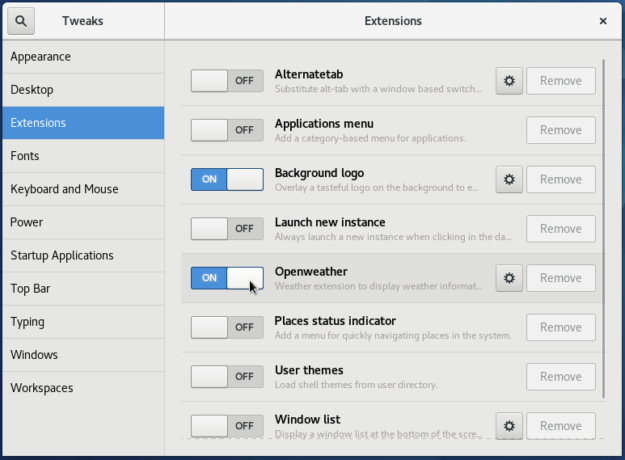
Figure 3: GNOME Tweak Tool on Fedora 25

